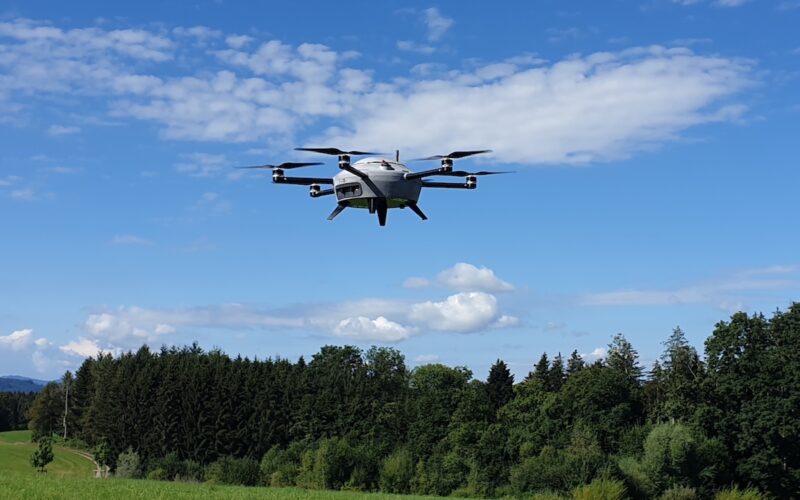Every day, the drone industry comes up with new and different uses for unmanned aircraft. Now, here comes hyper-local weather forecasting – which, in turn, will also prove useful for other drone operators conducting their own operations.
On May 23, 2023, at Grand Forks Air Force Base, North Dakota, a Swiss firm called Meteomatics is expected to start running what it claims is the first drone-based micro-weather service in the US (the firm calls it a ‘Meteodrone’ system).
Meteomatics has been cleared by the FAA to operate drones at an altitude of 9,000 feet (6,100 meters) in the vicinity of the said air base, which doubles also as a business park called GrandSKY for use by the UAS (uncrewed aircraft systems) industry.
The drones will collect atmospheric data to provide accurate and hyper-local weather forecasts that will support the operations of other drones and aircraft in the area.
By using this system, Meteomatics says it is bridging a gap in weather observation coverage. The rationale is that even the best weather observation and data collection systems currently in use have limitations in terms of providing accurate low level granular weather information – precisely the layer in which most unmanned air systems are expected to operate. As such, the startup claims its system is up to nine times more granular than the most precise weather services available on the market, as it can provide precise data within a range of up to one square kilometre.
Meteomatics expects that by being better able to understand and forecast local weather conditions such as rain, fog, hail, wind and so on, other drone operators will be able to optimize their operations and avoid weather-related hazards when operating beyond visual range.
The US Great Plains in particular pose a major challenge to weather forecasters, since the local orography means that weather systems move at great speed, so local weather conditions can experience sudden, drastic changes.
Meteomatics has also partnered with a meteorological data analysis company called TruWeather Solutions to provide coverage the whole of North Dakota, potentially expanding to other geographies further down the line.

